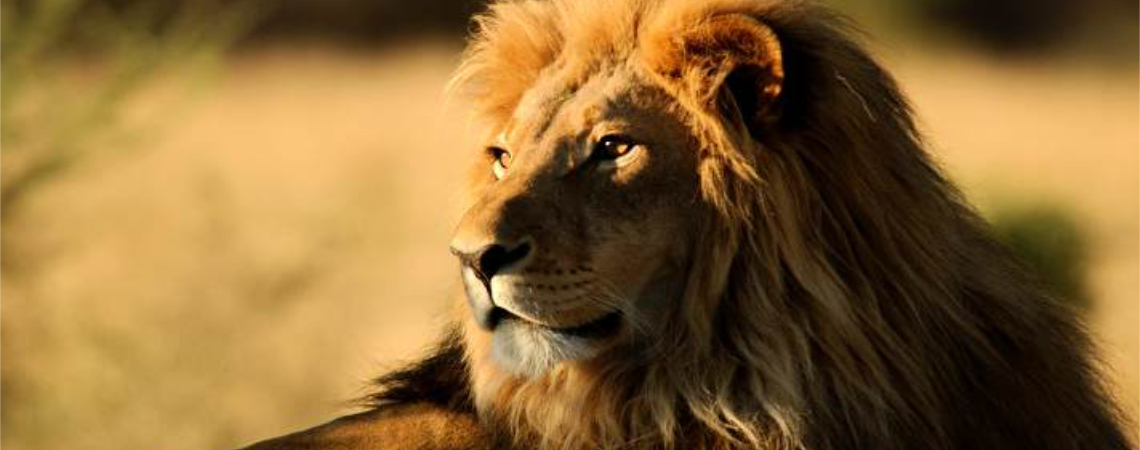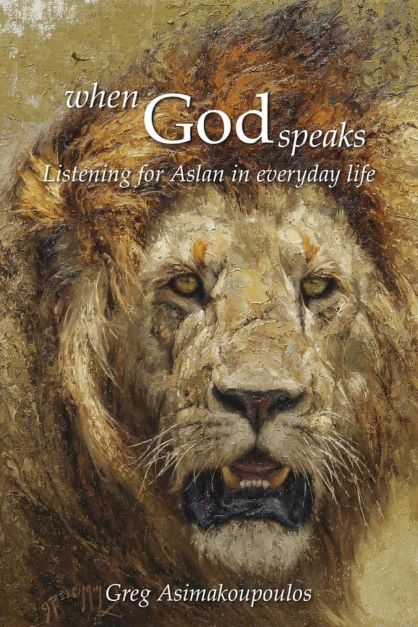by Greg Asimakoupoulos, Chaplain, Covenant Living at the Shores

Long before “The Lion King” was released as an animated movie or a Broadway musical, another lion reigned in the hearts of children in the English-speaking world. His name was Aslan, a Christ-like figure who ruled an imaginary kingdom in the Chronicles of Narnia.
Seventy-one years ago, a British novelist by the name of C.S. Lewis first introduced the world to a lion that was good but not always safe. On October 16, 1950 Lewis published “The Lion, the Witch and the Wardrobe” in which Aslan was the ever-present guardian and provider. It was the first of eight books in which the kingly lion pointed the reader to a benevolent Creator.
My introduction to Aslan was in the form of a play performed by a drama troupe from Seattle Pacific University in the fall of 1974. I had just graduated from this outstanding Christian liberal arts institution and accepted a position in the university relations office. My job found me arranging tours for various performing groups on campus. When the Chancel Players were presented the opportunity to perform “The Lion, the Witch and the Wardrobe” by C. S. Lewis at Expo ’74 in Spokane, I traveled with them.
Never having read any of The Chronicles of Narnia in my youth, I was intrigued by the character known as Aslan as presented in the Lewis’ story.
Thirty-five years later I found myself depositing two of my daughters on the campus of Wheaton College in suburban Chicago. Having helped them unload their belongings, I went about exploring the campus.
I was delighted to discover the Wade Center named for the founder of ServiceMaster Company. Within this attractive brick building is contained archived materials and memorabilia related to C.S. Lewis, J.R.R. Tolkien, Dorothy Sayers and G. K. Chesterton. The writing desks of Tolkien and Lewis are displayed along with the wardrobe from Lewis’ childhood home after which his most famous of all the Narnia chronicles is named. I was thrilled by what I saw.
I looked beyond Lewis’ wardrobe to see a beautiful framed painting of Aslan hanging on a wall. It reminded me of the lion sculpture that graces my desk in my office. By now I had come to an informed understanding of Lewis’ symbol. The lion is a powerful reminder of an ever-present God who was committed to my wellbeing. I loved the fact that Aslan was capable of making appearances without fanfare. It seemed as though he was always present even when not visible. He was a means of salvation when all seemed lost.
A dozen years after that self-guided tour of the Wade Center on the campus of Wheaton College, COVID threatened our world. During this time of lockdown and restrictions as well as fear and anxiety, I noted a number of coincidences that focused my perspective in a heavenly direction. These happenstances reminded me that in spite of being socially distanced, I was not on my own.
My friend SQuire Rushnell refers to such serendipities as Godwinks. In fact, SQuire is the one who coined the term. And during the difficult months of COVID, God, like Aslan, made His presence known at just the right time in unanticipated ways. I began observing Godwinks all around me. I started to sense the hot breath of an uncaged lion on my neck. I knew Aslan was near.
During lockdown, I resorted to my favorite pastime. Sitting at my laptop, I painted word pictures while dusting for divine fingerprints. The result is a collection of poetry in which I celebrate the presence of God in our everyday lives. I’ve called this volume “When God Speaks: Listening for Aslan in Everyday Life.” It’s an interactive workbook in which each poem is paired with a prompt or question and the space for the reader to reflect and respond.
Copies of “When God Speaks” can be ordered from Lulu.com
“Pastor and poet-laureate Greg Asimakoupoulos’ latest collection of poems sets its creative scope on the voice of God in daily life. Threaded throughout by images of C.S. Lewis’ beloved Aslan, Asimakoupoulos guides us on a safari of Godwinks, pointing out His quiet breath in the rustling of the ordinary, bowing before the divine roars in the disguised majesty of the everyday. Playful, earnest, observant, the poems lead the willing reader toward devotion, a slow prowl toward prayer, stalking elusive glory in the middle of our most elusive routines.”
Jeff Reed, Pastor, Highland Covenant Church, Bellevue, WA


